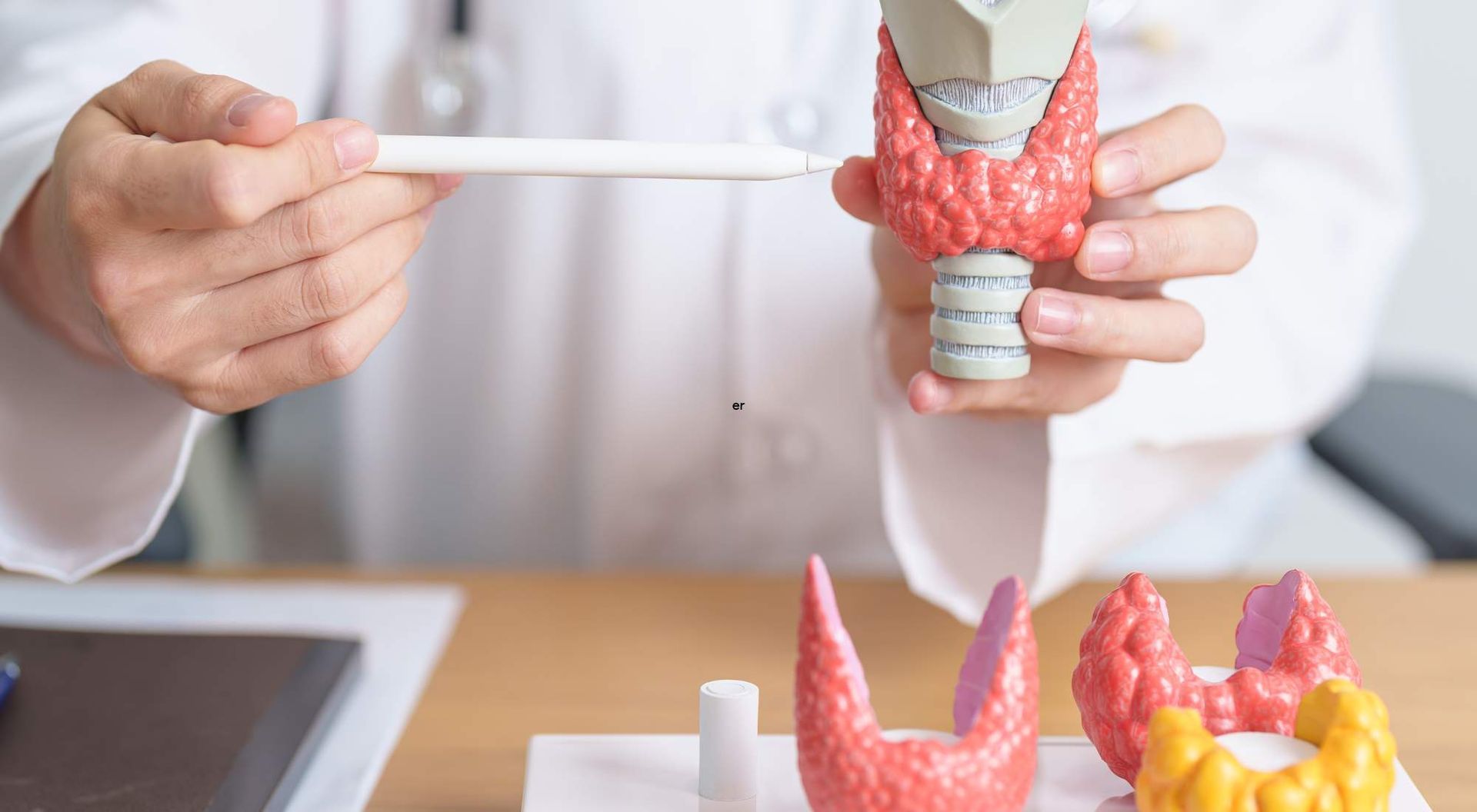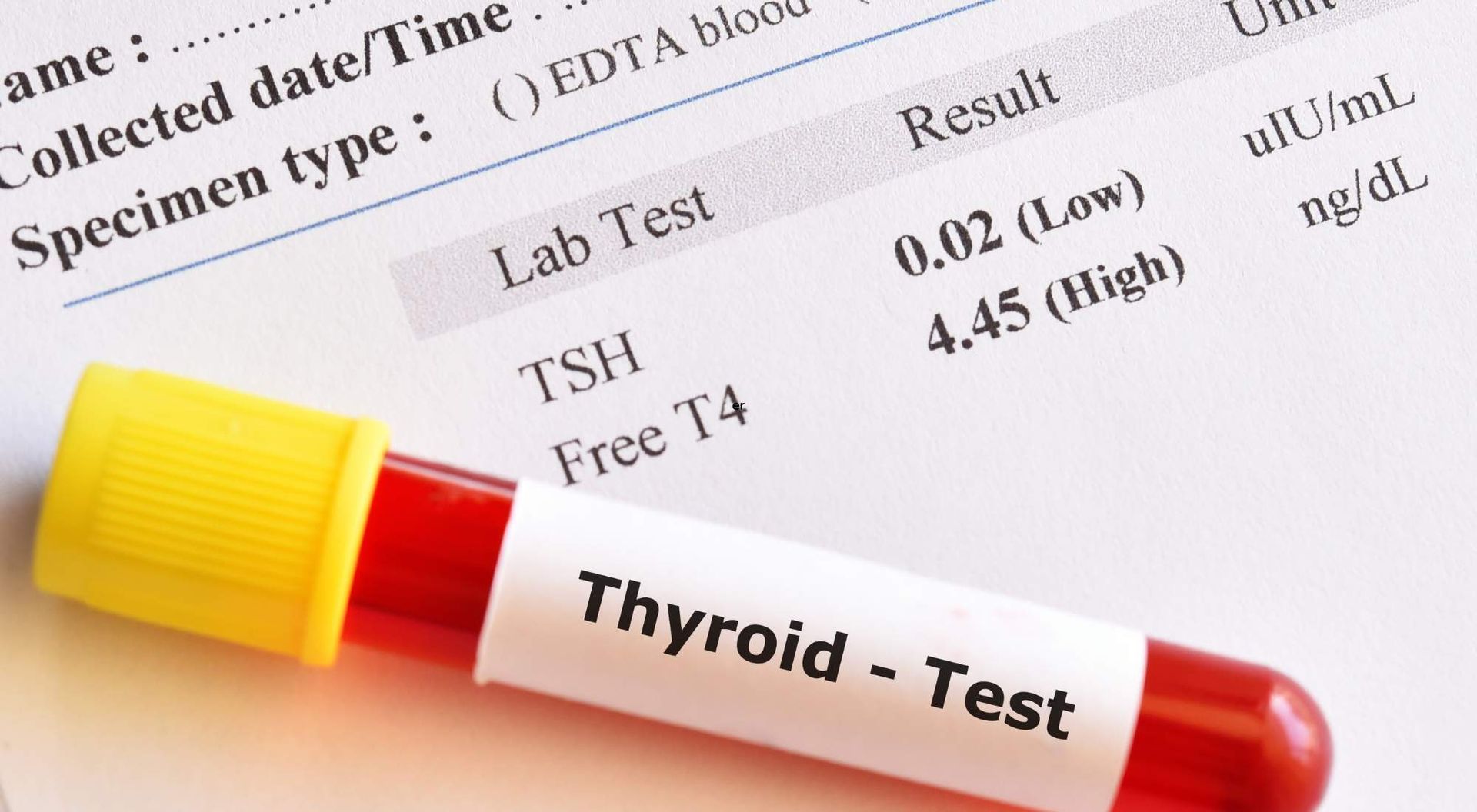Hypothyroidism and Normal TSH Levels: Assessing Testing Procedures To Receive an Accurate Diagnosis
"The content below is not intended to be a substitute for professional medical advice, diagnosis, or treatment. Always seek the advice of your physician or other qualified health provider with any questions you may have regarding a medical condition."
Nobody knows more precisely how you feel than you do. You may not have the medical expertise to diagnose all of your ailments, but if your experience doesn’t corroborate the advice of a medical professional, it is crucial to dig deeper.
Do you have hypothyroidism symptoms but a normal thyroid-stimulating hormone (TSH) level? If your doctor has told you that lab results indicate your thyroid must be fine based on the TSH measurement, that might not be the whole story.
TSH is often measured to indicate hypothyroidism, but there are more factors at work in the development of this condition. Learn how a more thorough analysis could offer a better complete picture of your health situation by taking into account:
- The role of TSH on the thyroid hormone
- The ways normal TSH levels are insufficient to rule out hypothyroidism
- Why other tests are necessary to understand thyroid function
Table of Contents
Can You Have Hypothyroidism With Normal TSH Levels?
Hashimoto's thyroiditis is an autoimmune disease. In someone who is not suffering from Hashimoto's, the autoimmune system is able to protect the body and keep it healthy by attacking viruses and bacteria.
But when Hashimoto’s disease comes into play, the immune system attacks the thyroid gland by mistake. The thyroid then becomes unable to make enough thyroid hormone, preventing the body from working as it was designed.
Understanding Hypothyroidism: TSH Levels and Symptoms
To fully understand how all this fits together, it’s important to understand TSH, what levels are considered normal, and what hypothyroid symptoms are.
HealthierU
can help you analyze your symptoms and discover what could be causing them.
Contact us today so we can get to know you and help you find ways to address the undesirable effects of hypothyroidism.
TSH Levels
Thyroid-stimulating hormone (TSH) is a hormone made by the pituitary gland that stimulates the thyroid to produce thyroxine (T4), which is then converted to triiodothyronine (T3), the hormone that regulates metabolism in most body tissues.
Normal TSH levels generally lie between 0.4 and 4 milliunits per liter (mU/L). If a patient has levels of 4–10 mU/L, that is abnormally high. TSH levels are generally higher in people with hypothyroidism because adequate T4/T3 concentrations in the body are the pituitary’s signal to stop producing TSH. When T4/T3 is not produced in sufficient quantities, as in hypothyroidism, the pituitary receives no such signal and continues to try to stimulate the thyroid.
Most doctors rely on the TSH test to diagnose hypothyroidism for a couple of reasons:
- Changes in TSH usually occur before changes in T4/T3 concentration, so this test allows earlier detection of hypothyroidism.
- T4/T3 levels tend to fluctuate more than TSH levels, making results of the TSH test a more reliable indicator of insufficient thyroid hormone production.
Hypothyroidism Symptoms
Symptoms of hypothyroidism include:
- Fatigue
- Sensitivity to cold
- Inexplicable weight gain
- Constipation
- Dry skin
- Hoarse voice
- Muscle aches or weakness
- Depression
- Coarse, thinning hair
- Irregular menstrual cycle
Other conditions can also cause some of these symptoms. When doctors screen for hypothyroidism in someone with normal TSH, they can screen for these other conditions as well. They often include:
- Sleep apnea
- Anemia
- Fatty liver
- Adrenal fatigue
- Fibromyalgia
- Vitamin or mineral deficiencies
5 Things That May Cause Hypothyroidism Symptoms With Normal TSH Levels
#1: Medications
Several medications can lead to hypothyroidism by suppressing TSH secretion. It might be the case during treatment with these medications that TSH levels are suppressed, but not to levels that may be considered abnormal. They may be on the lower end of normal, such that patients experience some hypothyroidism symptoms without the characteristic high TSH levels of hypothyroidism.
Medications that suppress TSH could include:
- Rexinoids - Used for treatment of T cell lymphoma
- Glucocorticoids - Steroid hormones that help fight inflammation; used to treat allergies, asthma, arthritis, Crohn’s, eczema, and others
- Dopamine agonists - Activate certain types of brain cells; used often to treat movement disorders
- Somatostatin analogs – Stop your body from making excessive hormones, as is the case with neuroendocrine tumors
#2: Overall Endocrine Function
In hypothyroidism that is caused by a problem with the pituitary gland (whether resulting from head trauma, brain or nasopharyngeal tumors, Sheehan’s syndrome, or radiation) TSH levels are often normal. This is likely because TSH is secreted but in a biologically inactive form. Although levels do not indicate activity out of the ordinary, the thyroid is not being stimulated to produce more thyroid hormone.
If the hypothalamus fails to secrete thyrotropin-releasing hormone (TRH) because of underlying disease, then the pituitary will not secrete TSH to stimulate thyroid hormone production in the thyroid. This also results in hypothyroidism and is usually treated by surgical removal of a tumor affecting the hypothalamus.
#3: Variations in What Is Considered “Normal”
Experts still debate what the upper and lower limits for normal TSH concentration should be. Because of this, labs and healthcare providers may have different levels for what they consider to be normal levels.
The safe range of TSH levels appears to depend on several factors, including:
- Age - The normal range increases as females get older.
- Gender - TSH concentration is lower in men than in women.
- Body mass index - TSH levels tend to increase with BMI.
- Iodine intake - TSH levels tend to increase with iodine intake.
- Ethnicity - One study found TSH concentrations to be higher in Caucasians than in Blacks and Hispanics from certain regions.
TSH levels also tend to fluctuate under certain conditions, such as pregnancy or illness. Therefore, there is disagreement about the precise parameters. As a result, a patient may in fact have hypothyroidism but by certain measurements be considered “euthyroid” — having a healthy thyroid.
In
nonthyroidal illness syndrome, seen in critically ill or starving patients, TSH levels may be normal but thyroid hormone is low. This syndrome is a complex condition caused not by thyroid dysfunction but by some other underlying illness or malnutrition.
#4: Cancer Treatment
Radiation therapy for cancer in the head or neck can expose the pituitary to radiation, possibly leading to eventual hypothyroidism that presents without abnormality in TSH levels (for example, if TSH is secreted in a biologically inactive form). Depending on the dosage of radiation received, radiation therapy yielded in one study an incidence of post-therapy hypothyroidism ranging from 48% to 83%.
A group of oral cancer treatments called tyrosine kinase inhibitors (TKIs) have proven to cause thyroid dysfunction, sometimes with normal TSH levels.
Professional but personal help is available to you at HealthierU.
We provide holistic care that can enable you to understand and healthily manage your hypothyroidism. Contact us for your first consultation.
#5: Other Types of Hypothyroidism
One of the most
common causes of hypothyroidism is Hashimoto’s disease. This usually presents with high TSH levels. However, patients with other types of hypothyroidism may present with normal TSH levels, for instance, in the following cases.
Subclinical Hypothyroidism
A person is considered to have subclinical hypothyroidism if their TSH levels are elevated from their usual levels. This may not be outside the range considered normal, but it can still signal a decrease in thyroid function.
Subclinical hypothyroid patients may also have higher-than-normal thyroid antibodies, but typically they have normal thyroid hormone levels. For this reason, subclinical hypothyroidism is not normally treated unless the patient is pregnant or plans to get pregnant.
Central Hypothyroidism
Central hypothyroidism occurs when the thyroid gland is healthy but the other endocrine glands that influence thyroid hormone production (the pituitary and the hypothalamus) or the connection between them are dysfunctional in some way.
As a result of this dysfunction, TRH, TSH, or both are not produced in adequate amounts for proper thyroid function. If TSH is not low, it could be the biologically inactive form that can’t fulfill its role in stimulating the thyroid.
This condition is much more
rare than other causes of hypothyroidism, but it could explain why hypothyroid symptoms appear without elevated TSH levels.
Why Using TSH Tests Alone Isn’t the Best Way To Diagnose Hypothyroidism
Since you can have hypothyroidism with a normal TSH level, it is important for your doctor to administer other tests as well. You cannot conclusively rule out hypothyroidism unless other possible contributing factors are considered.
- Other glands and hormones are involved in thyroid hormone production. TSH is only one of these. A TSH measurement might not even be a true indication of any disease process because “normal numbers” can mask a problem with the pituitary gland, from which it is secreted.
- TRH should be measured since that would indicate whether there is a problem with the hypothalamus.
- T4 and T3 should also be measured. Though these levels fluctuate more than TSH, this measurement will show how much thyroid hormone is being produced and how much is in the functional, active form.
- Since there is no universally accepted range for healthy TSH levels, some truly hypothyroid patients may seem healthy based on the TSH measurement when, in fact, they are not.
What Other Diagnostic Tools Are Available To Get a Full Picture of Thyroid Function?
Other tests, such as the following, can illuminate what is causing hypothyroidism:
- Free/total T4 test - Free T4, as opposed to bound T4, can enter and affect the body tissues. When measurement of this hormone is combined with a TSH test, it allows for a more accurate diagnosis of thyroid function.
- LC-MS/MS - This test (liquid chromatography-mass spectrometry) measures free (unbound) T3 and T4 more accurately than other tests, but it is not normally performed in most labs.
- A TPO antibody test measures the amount of antibodies that attack the thyroid. This is a good screening test for Hashimoto’s disease. You can catch
Hashimoto’s disease early, before waiting for TSH levels to elevate and for the thyroid to be damaged.
HealthierU: Focusing on Holistic Nutrition for Hypothyroidism Treatment and Symptom Management
HealthierU is dedicated to addressing hypothyroidism in a way that respects the holistic nature and multifactorial process of the condition. We can help you determine the precise cause of the symptoms you are experiencing.
When you understand the underlying cause, you can begin a regimen to counter the progression of hypothyroidism. HealthierU will guide you in developing lifestyle habits and nutrition plans that can improve your symptoms and overall well-being.
There is more to your story than just the numbers. We treat the whole person, without dispensing with the numbers. Contact us today for a free consultation.






